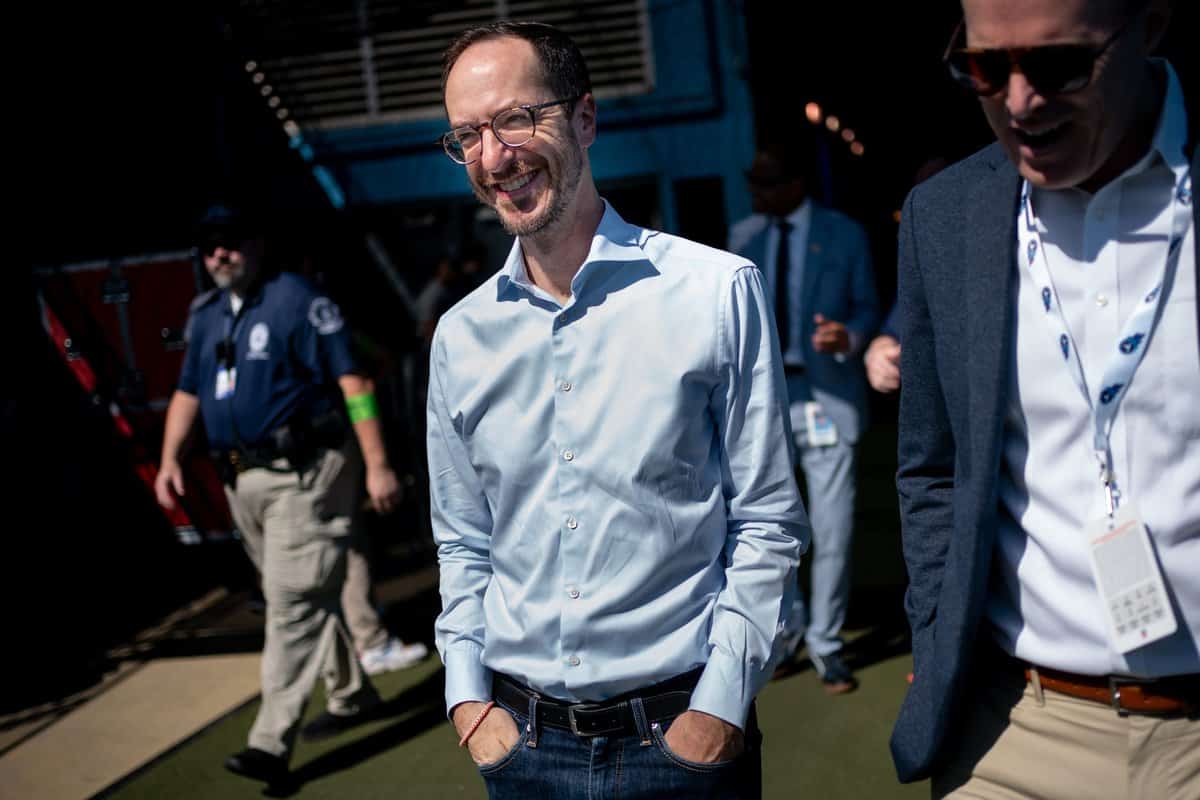At first, Jerry Reinsdorf was in Nashville for the winter meetings to celebrate Jim Leyland's election into the Baseball Hall of Fame.
But while he was town, the White Sox's chairman figured he'd engage in a little bit of a leverage ploy by meeting with Nashville Mayor Freddie O'Connell.
This is noteworthy for at least one purpose, even if it isn't likely to lead anywhere for reasons I'll discuss later.
When Crain's Chicago Business reported the idea of the White Sox entertaining sites outside Chicagoland in August, Reinsdorf pretended to be taken aback by the notion of moving the White Sox to Nashville.
“Ever since the article came out, I've been reading about I've been threatening to move to Nashville,” Reinsdorf said. “That article didn't come from me. But if we have six years left, we've got to decide what's the future going to be? We'll get to it, but I never threatened to move out. We haven't even begun to have discussions with the Sports Authority, which we'll have to do soon.”
A few months later, here's Politico reporting that Reinsdorf met with O'Connell, and the White Sox felt up for confirming the meeting ("We won't have additional comment," Scott Reifert said). Whether the story came from Reinsdorf to begin with, it's coming from him now, so that clarity is welcome.
O'Connell didn't say much about it on his end. The Tennessean relayed before the winter meetings that O'Connell said he "had no plans to try to woo anyone when it came to the Stars, and that any meetings during the Winter Meetings would be 'informal.'" In response to inquiries about meeting Reinsdorf, an O'Connell spokesperson said, “The meeting was introductory in nature, and Mayor Freddie O’Connell did not share anything with the White Sox owner that he hasn’t previously said publicly.”
However, when it comes to the taxpayer funding for stadiums, O'Connell has said plenty publicly. He was elected mayor in September, and his stance against the Tennessee Titans' stadium plan was a big component of his mayoral platform.
When the $2.1 billion stadium plan was approved back in April, O'Connell objected in no uncertain terms:
"It's absolutely absurd that we are all sitting here tonight in our second special-called meeting this month for a massive transfer of public wealth to billionaires," Metro Councilmember and mayoral candidate Freddie O'Connell said during the debate. "Unlike two weeks ago [when council returned Rep. Justin Jones to the state House], we are not here to deliver swift justice. We are here to deliver a generational mistake."
Had Reinsdorf made this overture the John Cooper, the previous mayor who stepped aside after one term, he might've had a more receptive audience. Cooper guided the Titans bill through the council as part of the development of the city's East Bank, and was supportive of using city funds for land purchases elsewhere.
When Cooper chose not to run for re-election, more than a dozen candidates stepped up to run for mayor, and O'Connell was the only city or state lawmaker running who'd voted against the plan. That made it a defining issue for him, and his and it turned out to be a successful one.
There's always a chance that O'Connell could change his mind if he's tempted to be known as the Mayor Who Brought MLB to Nashville, or that Reinsdorf will have a different mayor to deal with down the road (O'Connell is well positioned to remain mayor for another term, but the same could've been said about Cooper). But setting aside whether the league would approve a Chicago team and AL charter franchise relocating to a much smaller market, there isn't much reason to believe Nashville poses a threat.
Besides, if it's true that Reinsdorf never changes and never will, then you're advised to keep in mind what he said he really thought of moving to Tampa Bay in the 1980s.
Threatening to move the Sox to St. Petersburg, Florida, if Illinois legislators didn't fund a new stadium, he now explained, "a savvy negotiator creates leverage. People had to think we were going to leave Chicago." Those machinations angered St. Petersburg city administrator Rick Dodge. Realizing Reinsdorf was simultaneously negotiating with him and Illinois officials, he told his attorneys, "He was playing us off against each other. I'm not going to sit here and get chewed up like this."
Unlike St. Petersburg, Nashville doesn't have a stadium ready to go. It doesn't even have a site, and while it has an effective advocacy group in the Nashville Stars, it doesn't yet have a potential deep-pocketed owner with the financial and political capital to take charge of arranging and funding a plan (which is how Nashville SC's Geodis Park got across the finish line). O'Connell, a few months into his first term as mayor, doesn't seem especially likely to be a booster for an owner who has no plans of paying for anything himself.






